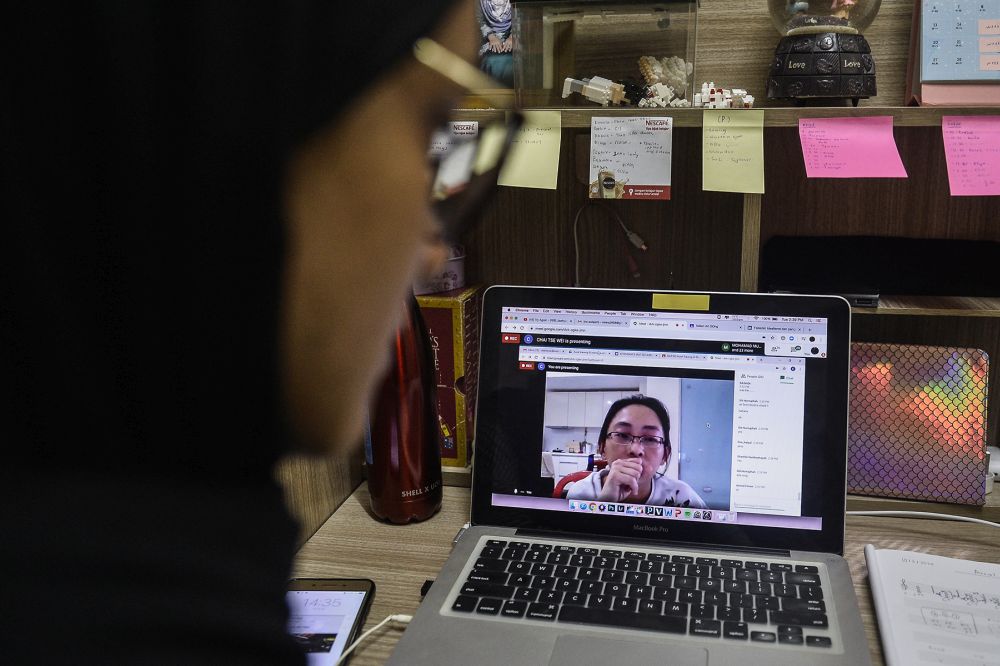.JPG)
KUALA LUMPUR, Dec 21 — A total of 2.699 million teaching and learning at home (PdPR) sessions have been conducted from Nov 17 to 30 involving teachers and pupils of primary and secondary schools under the Education Ministry, the Dewan Negara was told today.
Deputy Education Minister I Muslimin Yahaya said of the total number of sessions, 64 per cent was held online, offline (17 per cent) and combination of both methods (19 per cent).
“Online PdP has helped in terms of increasing pupil’s skills and efficiency in using ICT (information and communications technology).
“It has also enabled them to explore various methods and approaches to obtain information, besides applying the theories that they have learned,” he said during question time at the Senate.
He was responding to Senator Zaiedi Suhaili on the effectiveness of PdPR held between November and December this year, and how the government addressed the issue of internet access for pupils without ICT devices, especially in Sabah and Sarawak.
Muslimin said online learning was also the most common method used during the implementation of the movement control order, namely 70.96 per cent.
Therefore, he said the ministry was trying to provide internet access at speeds of between 30Mbps and 100Mbps to 10,066 schools nationwide in a bid to improve online teaching and learning.
“The ministry is constantly striving to increase internet access and device ownership by pupils in schools throughout the country, including in Sabah and Sarawak.
“The ministry is currently preparing internet access through the VSAT (Very Small Aperture Terminal) technology at the speed of 30Mbps for 141 schools under the ministry which currently do not have any broadband infrastructure, with the installation expected to be completed by February 2021,” he said. — Bernama

